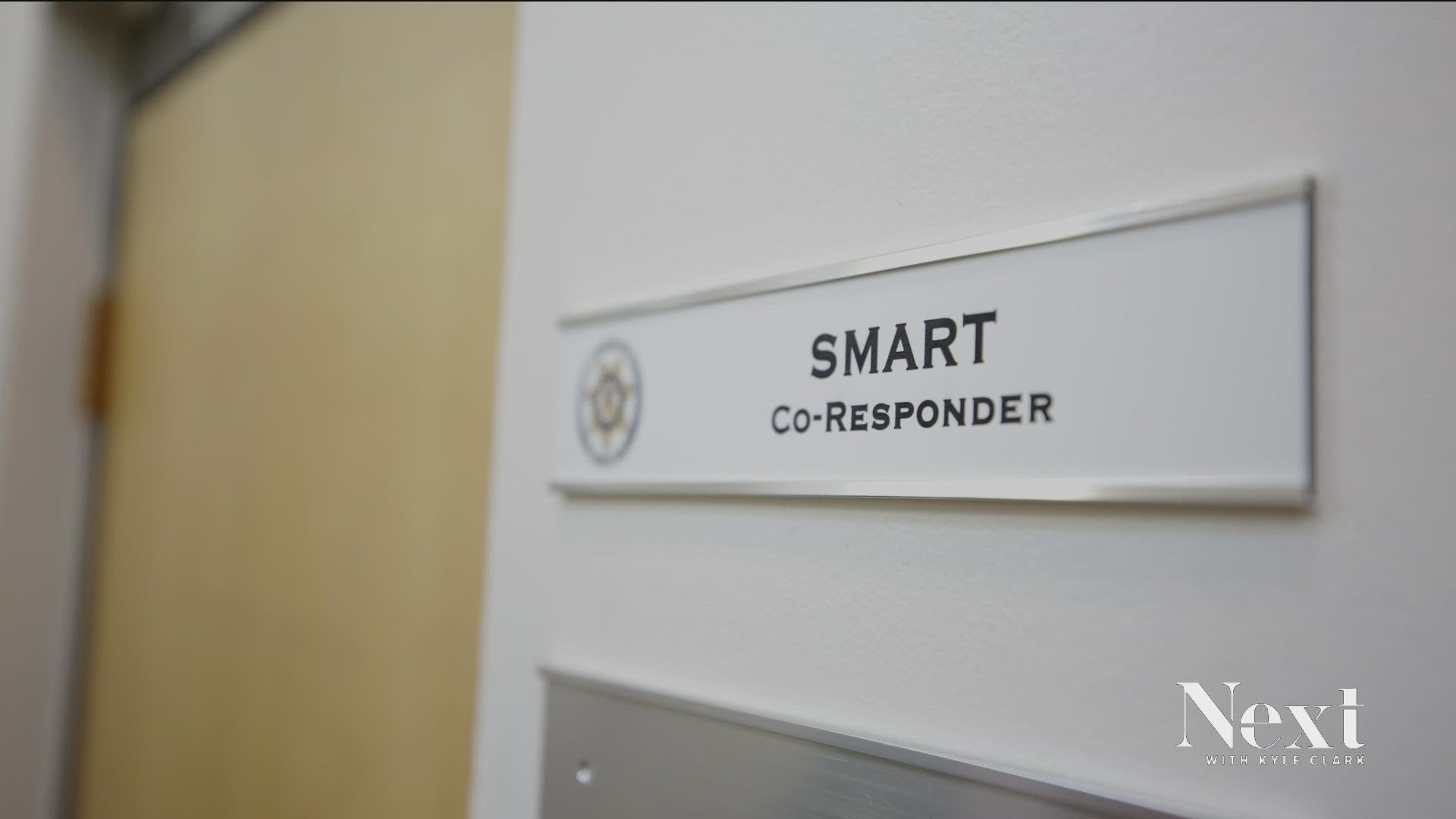BRECKENRIDGE, Colo. — Since 2021, more than 1,600 police calls in Summit County have been managed by a special team devoted to mental health crisis response.
The calls, which would have traditionally been considered high-risk calls for deputies and officers, resulted in no arrests, no uses of force and only a handful of mental health holds, which forward people to a higher level of care like a community mental health bed or a hospital stay.
“Before the teams were stood up here in Summit County, it became the default of public safety. I would say to take everyone to the ER room and drop them off at the back door,” Summit County Sheriff Jaime FitzSimons said. “And we literally broke the back of our emergency room.”
FitzSimons created the SMART system, which stands for System-wide Mental Assessment Response Team, in 2019 after a public spat with the county’s former community mental health center.
SMART teams are staffed with a deputy and mental health clinician who respond to mental health calls across the county in plainclothes driving an unmarked car. They work in concert with a case manager who works with clients after the initial call to connect them with mental health services in the community.
“The goal is to stabilize the person in the moment in the community,” he said. “It immediately starts to destigmatize and deescalate whatever is happening in the call. What the deputy provides is safety and stability to that environment to enable the clinician to work effectively.”
FitzSimons said the program has led to hundreds of people in crisis being stabilized in the community, rather than being hospitalized or jailed. He and his team said that can save people thousands of dollars in medical and ambulance bills.
“The default prior to 2019 was to dump people in the emergency room…since then we have literally stabilized hundreds of people in the community that otherwise may have been sent to a higher level of care, incurred an emergency room bill, incurred a community mental health center bill, probably lost their apartment, dog, car, you name it,” FitzSimons said.
Once a situation is de-escalated, the person who was in crisis is connected with a case manager in the sheriff’s office who directs them to services available to them in the community.
FitzSimons said the SMART team pre-books therapy appointments with local mental health providers each day for anyone who experiences a crisis, so they can get in to get help right away rather than wait weeks for an appointment.
He said the team has reduced uses of force across his agency and other police agencies in Summit County. His agency estimates SMART has freed up more than 1,100 hours for other police and public safety agencies in Summit County since 2022.
The challenge
“I hear people try to make it so simple,” FitzSimons said. “Like all you need to do is apply for one of [these co-responder teams]…there’s millions of dollars coming down from the state. You just need to apply for it then you stand up a team. And just go do it … and it’s not that easy.”
The sheriff said his team is funded mainly from grants which are difficult for the department to manage.
“I had one grant that I had $385,000 in one year and $40,000 the next,” FitzSimons said. “So now I have a deficit, and I’m walking around with hat in hand trying to make up the deficit.”
He’s working on getting dedicated staff devoted to grant writing, but he said other smaller agencies interested in pursuing a similar program may find that difficult.
“What these kinds of programs need is sustained funding…where a sheriff or a police chief doesn’t have to scramble around always looking for grant money,” the sheriff said.
‘The future of policing’
FitzSimons said he created this team, amid suggestions to remove crisis calls from police officers’ workload, because he believes police will never be untangled from the complex web of mental health crisis calls.
“If law enforcement is going to respond to these calls, why not have the appropriate response?” FitzSimons said. “Why not have that tool in your community, which in our case is the SMART team?”
Recently, a Summit County SMART team was able to negotiate with a man who threatened to shoot himself in a Breckenridge hotel. Over the course of eight hours, a clinician was able to convince the man to give up the gun over the phone, then worked to get him to a safer environment where he could get the help he needs.
Lieutenant Daric Gutzwiller oversees the SMART program. He said the work has changed his outlook of his profession.
“I’ve been with the agency for 18 years, and I always tell people I was getting really tired of putting people in a box, in a cage,” Gutzwiller said. “The same people over and over and over again.”
“This is probably some of the most satisfying enjoyable work that I’ve ever done in law enforcement," he said.
Along with SMART responding to mental health calls in the field, FitzSimons has also instituted a similar program in the Summit County Jail. There, inmates are offered group therapy, medicated assisted therapy for drug addiction, EMDR laser therapy and acupuncture.
A supervisor of that program, called STARR, or Strategies to Avoid Relapse and Recidivism, said it has reduced people returning to the jail and helped others stay out of state prisons.
“I believe that with a team like this, a co-responder team whatever that looks like for your community…having that as a resource to deploy on any call at any time around the clock…it is the future of policing,” FitzSimons said.

